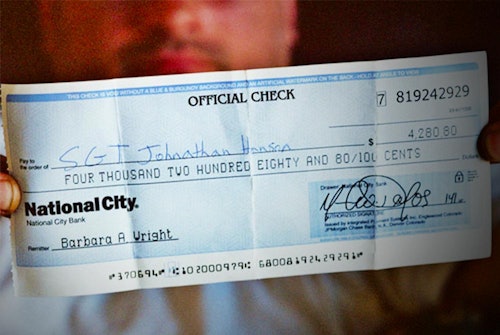- Important Tax Return Deadlines and Dates
- When is Tax Day 2022?
- When Are State Taxes Due?
- How Early Can I File My Taxes?
- When Are Tax Extension Filings Due?
- How Do I File an Extension?
- When are Estimated Taxes Due?
- What If I Owe More Than I Can Pay?
- What If I Miss a Tax Deadline?
- How Do I Know If I Owe a Tax Penalty?
- How to Pay Tax Penalties
- How to Remove or Reduce a Penalty
- How to Dispute a Penalty
Make sure you’re aware of important tax return deadlines, extensions, penalties, and other dates this tax season.
Important Tax Return Deadlines and Dates
| Dates | Deadlines |
| January 15, 2022 | 4th-quarter 2021 estimated tax payment due |
| April 18, 2022 | 1st-quarter 2022 estimated tax payment due |
| April 18, 2022* |
Individual tax returns due for tax year 2021 Last day to make a 2021 IRA contribution |
| June 15, 2022 | 2nd-quarter 2022 estimated tax payment due |
| September 15, 2022 | 3rd-quarter 2022 estimated tax payment due |
| October 17, 2022 | Extended individual tax returns due |
| January 15, 2023 | 4th-quarter 2022 estimated tax payment due |
*This date may vary for certain states.
When is Tax Day 2022?
For the 2021 tax season, the deadline to submit your federal tax return or request an extension is April 18, 2022.
Typically, Tax Day falls on April 15, but Washington observes Emancipation Day on April 16 which falls on a Saturday this year. Therefore, the Friday before is considered a holiday and Tax Day falls to the next business day: Monday, April 18.
Although the IRS extended the filing and payment deadlines for the 2019 and 2020 tax years due to the COVID-19 pandemic, it’s unlikely that this years’ deadlines will be extended.
When Are State Taxes Due?
For most states that collect income tax, April 18 is still the deadline to file your taxes. There are some exceptions:
- Colorado:* May 16
- Delaware: May 2
- Kentucky: May 16
- Iowa: April 30
- Louisiana: May 15
- Maine: April 19
- Massachusetts: April 19
- Virginia: May 2
You can check your state department of revenue for the most current information and deadlines.
*The Colorado extended tax deadline is only for victims of the 2021 wildfires.
How Early Can I File My Taxes?
The IRS will begin accepting tax returns on January 24, 2022.
When Are Tax Extension Filings Due?
Taxpayers who are requesting an extension have until Oct. 17, 2022, to file their 2021 tax return. However, this does not mean you can pay your taxes later; it just allows you more time to file your return.
You still need to pay an estimated amount of what you may owe by April 18 to avoid late penalties.
How Do I File an Extension?
If you need more time to prepare and file your federal tax return, you can request an extension. You must do so before the April 18, 2022, deadline.
To do so, you must fill out and submit Form 4868, the Application for Automatic Extension of Time to File U.S. Individual Income Tax Return. You’ll only be notified if your request is denied.
Your estimated income tax is due when you file Form 4868 to avoid any late penalties and interest.
The IRS automatically grants a two-month extension for U.S. citizens and resident aliens who are:
- Living outside of the United States and Puerto Rico and your main place of business or post of duty is outside the U.S. and Puerto Rico or
- Military or naval service members on duty outside the United States and Puerto Rico
To use this automatic two-month extension, you’ll need to include a statement regarding which situation qualifies you for the extension.
When are Estimated Taxes Due?
Estimated taxes are typically paid by individuals who pay quarterly estimated taxes such as self-employed or independent contractor jobs. Additionally, if paycheck doesn’t have income taxes taken out before the money gets to you, are required to pay estimated taxes.
Estimated taxes are due quarterly and must be submitted with Form 1040-ES. Those deadlines are as follows:
- First-quarter payments: April 18
- Second-quarter payments: June 15
- Third-quarter payments: Sept. 15
- Fourth-quarter payments: Jan. 15, 2023
What If I Owe More Than I Can Pay?
Some individuals may be facing financial troubles due to the ongoing COVID-19 pandemic, job losses, health issues, or other factors. If you’re unable to pay your taxes bill in full by the deadline, you should still file your return on time and pay as much as you can.
When filing, you can setup an installment plan for the balance so that you’re not stuck having to foot the entire bill at once.
What If I Miss a Tax Deadline?
Depending on what was missed and whether you owe money or are due a refund, you have a few options when missing a tax deadline.
In general, the late-filing penalty fee is 5% of the taxes due for each month your return is late and can increase to up to 25% once you are delinquent for more than 60 days.
Late-payment penalty fees are 0.5% of the taxes due for each month your return is late and can go up to 25% of your unpaid tax the longer it goes unpaid.
- Owed a Return: If you overpaid for the 2021 tax year and are owed money, there’s generally no penalty for filing your return late. You’ll normally have three years from the tax return deadline to claim a tax refund. After that, unclaimed tax refunds become the property of the U.S. Treasury.
- Owe Tax or Estimated Tax: If you owe money to the IRS and miss a tax deadline, it’s important to still file your return as soon as possible. This also applies to estimated tax payment deadlines. Interest is charged daily on delinquent returns as well as failure to file penalties and failure to pay penalties. This will continue until you file and your balance is paid in full.
Tax Return FAQs
Have more questions about your 2021 tax returns? Check out our FAQ page to make submitting your tax returns and collecting your refund easier.
How Do I Know If I Owe a Tax Penalty?
Taxpayers who miss their tax return deadlines or don't meet their tax obligations may owe a penalty. If you owe a tax penalty, the IRS will notify you by mail and will detail the penalty, the reason for the charge and what to do next. If the information within the notice is correct, you’ll need to pay the penalty.
These notices or letters will include an identification number. Don’t lose this number or give it out to anyone else.
You may owe a tax penalty if you don’t:
- File your tax return before the deadline
- Pay any tax you owe on time and in the right way
- Prepare a correct return
- Provide accurate information returns
How to Pay Tax Penalties
To pay tax penalties, visit the IRS’ website to pay online. You can also do so by same-day wire, check or money order, cash, or electric funds withdrawal. The IRS accepts full and partial payments, including installment agreement payments.
How to Remove or Reduce a Penalty
If you owe a penalty on accident, you may be able to remove or reduce it since you were acting in good faith. To do so, you must show reasonable cause as to why you weren’t able to meet your tax obligations.
How to Dispute a Penalty
You may dispute a penalty if you disagree with the amount you owe. To do so:
- Call the toll-free number on your notice or letter, OR
- Write the IRS a letter discussing why the penalty should be reconsider
Sign and send your letter along to the address on your notice along with supporting documentation. If your letter came with instructions or deadlines for disputing the penalty, you’ll need to adhere to those guidelines.
You’ll need this information when calling or sending a letter:
- The notice or letter
- The penalty you want reconsidered
- An explanation of why each penalty should be removed











Comments